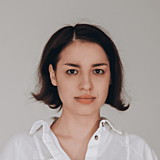Learning to solve multiple-view geometry
Diana Sungatullina (Ph.D. Student)
Multi-view geometry is an important field in computer vision and robotics, which provides an understanding to the foundations of the subject. The development of this field has, however, not yet been greatly influenced by the recent advances in machine learning and geometrical machine learning in particular. We aim at using machine learning to address long-standing problems in multiple view geometry that have not been solved by traditional techniques. For instance, current methods for computing camera geometry from image matches can cope efficiently with only relatively simple problems in two-view geometry. Thus, there are still no really efficient solvers even for three-view geometry. The classical approach to solver design leads in this case to very complicated computation procedures due to trying to solve exact algebraic problems. Recent advances in numerical algebraic geometry start providing a practical alternative to the elimination-based approaches. In particular, we believe that these approaches can be greatly improved in efficiency and robustness by learning optimal strategies of solving, efficient problem analysis, and fitting the problem to the data. Our plan is to develop a new approach to solving hard problems in multiple-view geometry that would use machine learning to tune solving techniques to the data and thus making them tractable and efficient.
| Primary Host: | Tomas Pajdla (Czech Technical University) |
| Exchange Host: | Konrad Schindler (ETH Zürich) |
| PhD Duration: | 01 February 2022 - 01 February 2026 |
| Exchange Duration: | 01 February 2024 - 01 August 2024 - Ongoing |

